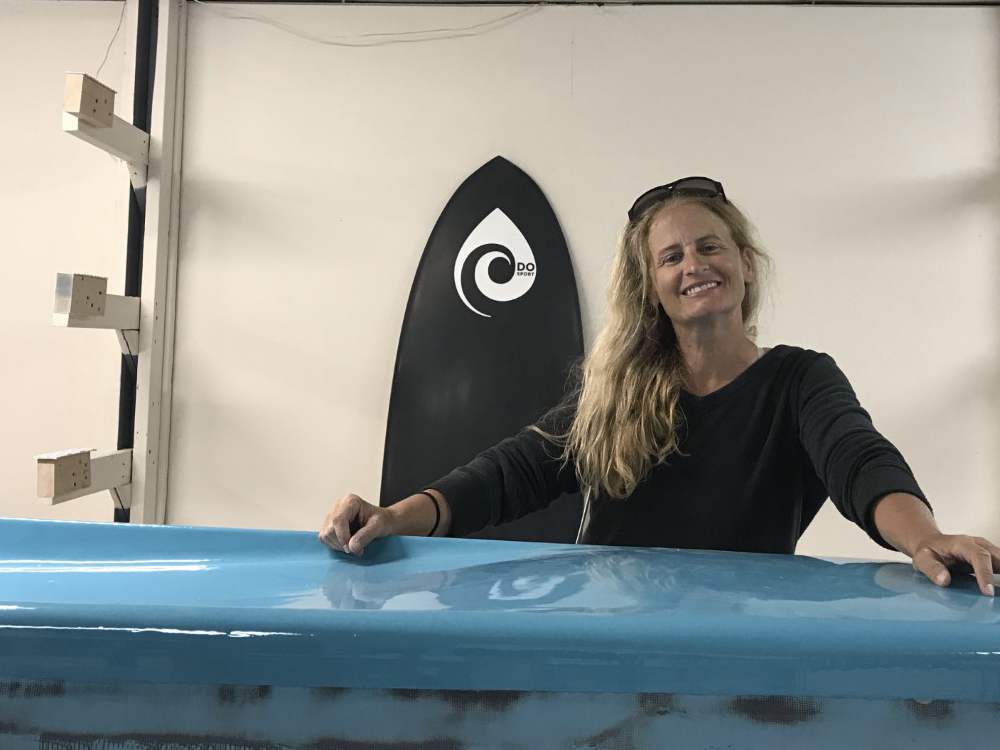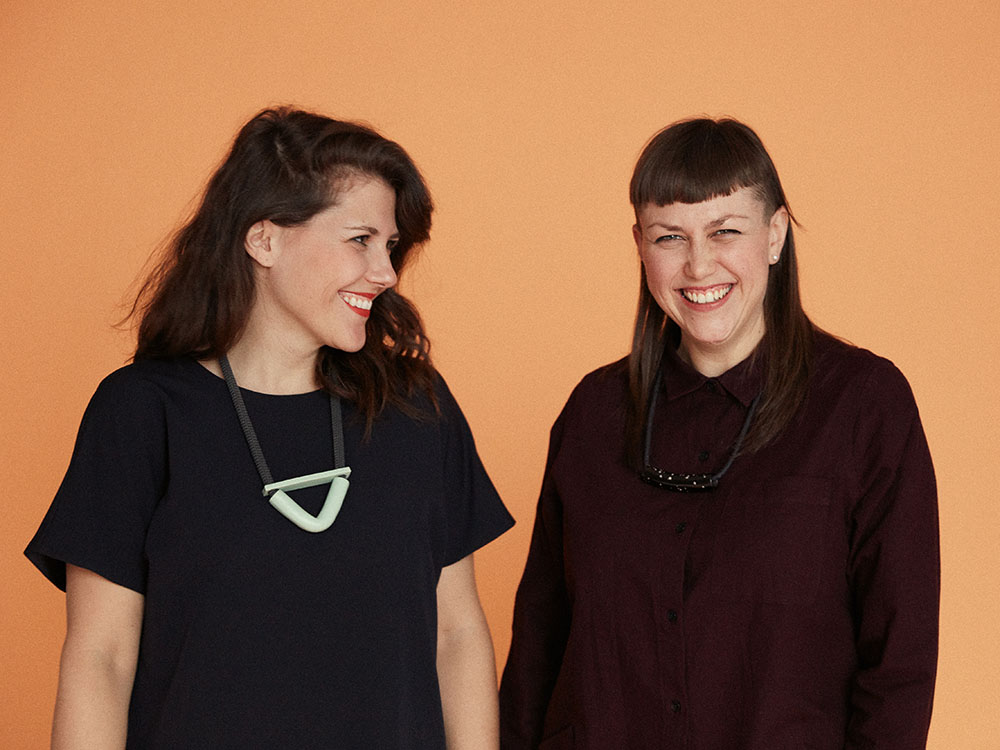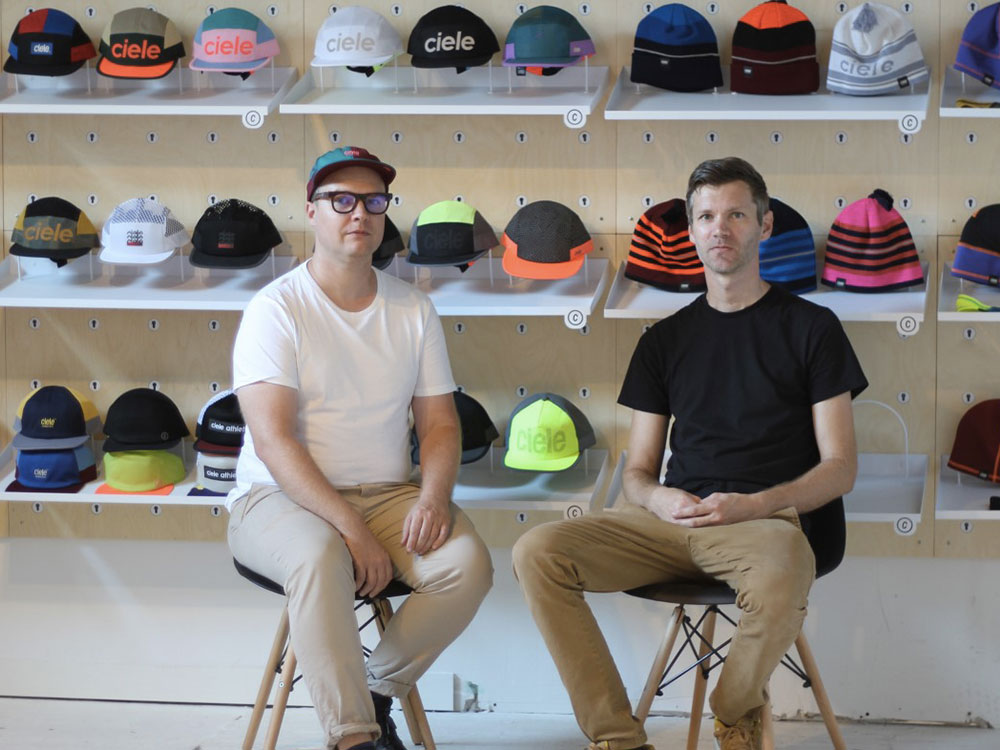
Do Sport: A company riding the wave
Dominique Vallée’s Story
From 1998 to 2012, Dominque Vallée travelled the world representing Canada as part of the national windsurfing team. But whether she was on water or snow, board sports have always been part of her everyday life. She discovered paddle boarding in 2007 and added the activity to her training program. At the time, the sport was enjoying increasing popularity while remaining relatively unknown in Quebec. That’s what spurred Vallée to begin teaching paddle boarding, which is both a recreational pastime and an athletic sport.
Testing the waters
Trained in kinesiology, Vallée saw teaching paddle boarding as a logical continuation of her career as an athlete and in sports therapy. She tasked a friend who was working in the toy sector in Asia to visit board manufacturers and order a dozen boards in her name for the summer of 2012.
At first, the entrepreneur spent a lot of her energy educating people about the sport, but the public’s enthusiasm quickly became apparent and new devotees expressed interest in obtaining equipment. That’s what spurred Vallée to get involved in designing boards, whether inflatable or rigid, which she then had produced overseas.
Years spent in competition (and managing Club Multivoile 4 Saisons in Trois-Rivières) made the athlete adept at repairing well-worn boards, and also gave her knowledge about materials. “Actually, when I set about making new boards, it was pretty easy,” she explains.
Her business model worked well until 2015, when she received a shipment of boards of which 75 percent contained cosmetic and manufacturing defects. “Do Sport is named after me, Dominique,” says the entrepreneur. “I couldn’t allow myself to deliver imperfect boards to my retailers.”
The Trois-Rivières athlete therefore considered the possibility of producing her own products, and before she had even made a decision, she was contacted by Radio-Canada who had heard a rumour that she might be returning production to Canada. She didn’t need any further convincing. “If the Chinese can do it, then I can do it too.”
Diving in
Production got off to a rough start. The machine meant to cut the foam based on the proposed designs got broken during transportation. This damaged machine, the only one used in what is otherwise an artisanal production process, prevented the company from stocking retailers during the first year, despite several attempts to find alternative production procedures.
While the inflatable boards have always been imported from Asia, the sole owner of Do Sport has always believed in the importance of producing the composite boards in Quebec in order to offer products that reflect her values. “I wanted the boards to be manufactured here because of quality control, the environmental aspect, yes, but also in order to be more creative. I could test each improvement quickly and make corrections if I wanted to. When ordering from abroad, you have to accept and sell what you get.”
In 2017, the company was finally able to deliver its first boards and started advertising during special events. Various partnerships with sports schools were also negotiated in order to promote her products and enable people who were interested to test out the boards.
Having always taken an active part in development both amongst retailers as well as schools, the founder of Do Sport also opened Centre Do Sport in 2020 in Trois-Rivières, where she offers various products (paddle boards, surfboards, kayaks and wakesurf boards) as well as a variety of training. New products are also always on the drawing board to fulfill every need. To that end, she developed a paddle board adapted for wheelchair users in 2019.
Surfing the wave
This past spring, when the COVID-19 crisis put a stop to practically every sector of activity, the founder admits she was scared. She found herself alone in the workshop, fulfilling the delivery of current orders, but without any idea what would happen in the future. “The first two, three weeks, nothing was going on,” recalls Vallée, “but afterward, things took off. We’ve never worked so hard. We were in our fifth year and I think we were mature enough to handle it.”
It wasn’t the still-timid retailers who exploded her order book, but consumers. Direct sales and co-branded contracts depleted Do Sport’s inventory at the start of summer 2020. Vallée partly attributes her success to consumers’ increased concern with buying local products. In fact, in her opinion, starting from the first government communication on buying local, she noticed a difference in her sales and on social media. “The crisis increased interest in good quality products made here. Our boards are really works of art,” explains the entrepreneur without a trace of false modesty, “and people recognize this. I suspect that one day consumers will be ready to change their consumption habits, but I don’t know when. For now, we need to manage our growth and be patient in order to gradually get there. It’s a big challenge when you’re coming from being the competition.”
Do Sport in Numbers
Under 10: Number of people on the Do Sport team in the summer of 2020
Over 20: Number of paddle board models offered, not including custom boards
Almost 40: Number of products available


